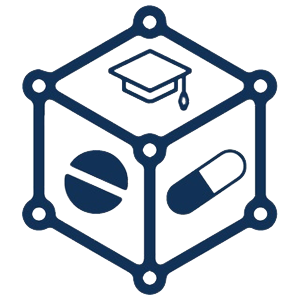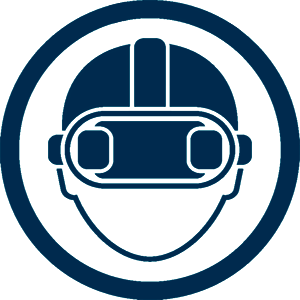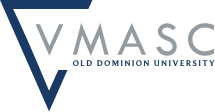Student Research Opportunities
Fostering MS&T exploration and scholarship are the key tenets of ODU-VMASC student research opportunities. Throughout each year, ODU-VMASC research faculty and project leads hire numerous diverse students to work on innovative projects through paid and un-paid internships, assistantships, project development, and various applied research.
This page is dedicated to providing snapshots of research projects sponsored by ODU-VMASC research faculty for K-12, undergraduate, graduate, and post-doctoral students. Explore current research opportunities below that interest you. Contact the designated project lead for more information!
Computational Framework for Assessing Absorptive Capacity
Using various modeling approaches- simulations, AI, statistics, qualitative data analysis- to explore humanitarian operations and responses in refugee and host communities. Project Summary: The sudden, rapid arrival for displaced populations—refugees and internally displaced persons—can place additional demands on infrastructure, local politics, and social relations. Host communities face the challenge of providing for the basic needs of newly arrived populations as well as the local citizens. The “absorptive capacity” of a host region reflects these demands that can exacerbate or create unstable conditions leading to xenophobia or failure of systems such as healthcare. This project uses qualitative and quantitative data from a range of sources to characterize and understand the absorptive capacity of three cases: Lesbos, Greece; Cucuta and Barranquilla, Colombia; and Cape Town, South Africa.
Student Research Opportunities: Qualitative analysis of newspaper articles from case countries; Automated content analysis of texts, news, and social media data; Statistical data analysis; Simulation model development, design, implementation and testing; Software design, testing, and implementation; Content analysis with IBM Watson; Collection and analysis of data from the Twitter API
Student Qualifications: Students should be computationally-oriented, strong preference for students with backgrounds in computer science and/or engineering. Social science students with an interest in emerging computational research techniques and/or software are encouraged to apply. Students should be self-motivated, independent, and ready for a high-pace, high-expectation research environment. Ongoing faculty mentorship available. Strong preference for speakers of Spanish or Greek.
For more information, please contact Dr. Erika Frydenlund at efrydenl@odu.edu or Dr. Jose Padilla at jpadila@odu.edu

By the community, for the community: Participatory Research to Understand Disparities in Vaccine Uptake
Hesitancy to get the COVID-19 vaccine looks different in various communities, where identities such as race, class, gender, geography, and politics can influence people’s decisions to vaccinate or not. Students will work on a diverse team to gain experience with participatory, community-based research and outreach. Project Summary: Project goals are to identify the root, systemic drivers of low vaccine uptake in marginalized communities through participatory research with regional community members, leaders, and experts, supplemented by existing quantitative data and original survey data that captures decision-making related to vaccine hesitancy and uptake. Specifically, the study objectives are to collect original data from often overlooked communities in Hampton Roads (e.g., racial and ethnic minorities, undocumented migrants, and non-English speakers), laying the foundation for current/future research through local relationships and capacity development.
Student Research Opportunities: Qualitative and quantitative data collection and analysis; Interviews with community partners and community members; facilitating participatory modeling workshops; synthesizing workshop data to actionable plans for increasing vaccine acceptance; reporting results in infographics, social media, and public presentations to share findings with a wide audience.
Student Qualifications: Students should come from a social or health sciences background, or have an interest in vaccine hesitancy. They should be willing to engage directly with community partners in fieldwork, workshop facilitation/participation, and outreach and engagement. Students will be trained in qualitative and quantitative methodologies. Preference given to students with fluency in other languages and/or personal connection/embeddedness in a group that they feel is marginalized in healthcare and/or pandemic response.
For more information, contact Dr. Erika Frydenlund at efrydenl@odu.edu or Dr. Jose Padilla at jpadila@odu.edu

Trustworthy AI
Building Trust in AI. Project Summary: Develop machine learning techniques to improve reliability and resilience of AI systems.
Student Research Opportunities: Students will have the opportunity to contribute to cutting edge AI security research for the Department of Defense.
Student Qualifications: Machine learning, software development in Python.
For more information, please contact Dr. Sachin Shetty at sshetty@odu.edu

Digital Neighborhoods Project
Radically collaborative digital health and health equity analytics. Project Summary: The Digital Neighborhoods project seeks to engage with community stakeholders to leverage digital health and health equity resources with datasets of structured and unstructured data and advanced analytics. The data and analytics will test a variety of health interventions with measurable impacts for health disparities in the Hampton Roads area of Virginia. The project builds on ongoing computational collaborations among ODU, NSU, and EVMS.
Student Research Opportunities: (1) Helping conduct systematic reviews of research literature on health interventions and policies.
(2) Creating graphical user interfaces to facilitate user access to relational databases without users needing to know SQL.
(3) Creating graphical user interfaces to facilitate user access to predictive analytic and machine learning capabilities without user's needing to be well-versed in a programming language.
(4) Moving predictive analytic and machine learning functions from Python and R into Docker containers.
(5) Conducting analysis and modeling related with health data from the Hampton Roads area of Virginia.
Student Qualifications: Actively pursuing an undergraduate or graduate degree in the sciences and a significant interest in working on an academic research project.
For more information, please contact Dr. Ross Gore at rgore@odu.edu

Exploring if Psychological Traits Are Reflected by Social Media Content
Does the sentiment of your social media reveal anything about your psychological traits? Project Summary: Question: To what degree does the sentiment of a Tweet reflect variance in psychological traits versus the situational context in which those traits were expressed? Can Twitter content be used to measure personal psychological traits of the person who authored it using sentiment analysis?
Student Research Opportunities:Conduct analysis and write technical reports related to topic modeling, sentiment analysis and structural equation modeling. In each case examples will be given to the student that will only need to be slightly modified. However, the student will need to understand the dynamics of these techniques to be able to modify them and summarize the results of the analyses.
Student Qualifications: Seeking students currently pursuing a degree in computer science, mathematics, data science, statistics or psychology. An intense interest in doing and publishing academic research.
Student Skillsets Post-Project: Improved academic research experience. Authorship credit on a research paper submitted to an academic conference or journal. Improved understanding of applying topic modeling, sentiment analysis and structural equation modeling.
For more information, please contact Dr. Ross Gore at rgore@odu.edu

Improving Validation Capabilities for Simulations
To what extent can debugging or validating a simulation be improved and automated? Project Summary: A large amount of data are needed to explore these research questions and our team is beginning to conduct analysis and summarize our results. We are looking for a student to join our team and help perform analysis and writeup the results.
Student Research Opportunities:Work with research faculty members to provide more capabilities and improve the user experience of the tool currently deployed at https://vmasc.shinyapps.io/VandVCalculator/
Student Qualifications: An understanding of the difficult nature of debugging or validating computer programs or simulations. Actively pursuing a degree in computer science, statistics, data science or modeling and simulation.
Student Skillsets Post-Project:An improved understanding of building software to support a community of users. Authorship on an academic paper submitted to a conference or journal. Experience of working under an agile software development methodology with regular deployment. A better understanding of developing software with user experience in mind.
For more information, please contact Dr. Ross Gore at rgore@odu.edu

Virginia Open Datacube- Commonwealth Cube
Data and Computer Science for Earth Analytics and Climate Modeling Project Summary: The Commonwealth Capabilities Cube is an extension of the Virginia Open Datacube to increase its utility for public climate and environmental outreach, policy, and planning - we are extending the Datacube system to be more accessible and available to public partners in the areas of climate response, public health, and wildlands management.
Student Research Opportunities:Data Science, Data Engineering, Computer Science, GIS, Data-driven Ecological and Climatology studies
Student Qualifications: Students will be considered at various levels of qualification. Experience with Python, Jupyter, and cloud services is preferred but not necessary. Strong statistical or analytical interest is a plus.
Student Skillsets Post-Project:Data science for geospatial data, Python & Jupyter for spatial analytics, experience working with environmental data and generating analysis-ready datasets
For more information, please contact Alex Nielsen at anielsen@odu.edu

US Navy Simulation Framework to Support Testing of Autonomous Vessel Behaviors
Autonomous Boats in Simulation for Maritime Environments Project Summary: VMASC researchers are working with the US Navy to develop a comprehensive simulation of the maritime environment with the goal of using simulation to perform the majority of testing of new autonomous boats in simulation, versus in the field. There are several opportunities for students to engage in this project, as below. Requires that students are US citizens.
Student Research Opportunities:Software development to implement simulation software as designed by other project members.
Software development to develop graphical interfaces used in various simulation-related tasks.
Software engineering to assist with the design and implementation of software for the project.
Student Qualifications: Software developer: experience of C++, Linux and ROS2; Software developer: experience with Javascript and interactions with XML formatted files; experience with map-based GUI interfaces, like Google Maps, is highly desired. Exposure to working in VM containers is a plus, but not required; Software engineer: experience in any of the following topics development of dynamic models for simulation, exposure to ROS2 navigation frameworks, real-time simulation, experience with C++, templates and other C++17 features highly desired
For more information, please contact Dr. Yiannis Papelis at ypapelis@odu.edu

Enhancing the WAM-V Autonomous Vessel
Propelling Unmanned Vessel Research and Development Project Summary: The Virtual Environments and Robotics Laboratory’ WAM-V unmanned vessel was used to compete in the Office of Naval Research RobotX competition. The goal is now to further enhance the capabilities of the vessel so it can be used in a variety of demonstrations, and pilot projects. The specific work will depend on individual student’s skills, interests and capabilities, but below are a few of the required skills. Students can participate as volunteers, or in paid positions, hourly or during summer under internship-type arrangements. Students can also select specific projects as part of class work, senior design projects, or MS-level projects.
Student Research Opportunities:Willingness and ability to support launching, recovering and operating the vessel in a variety of locations with access to water. That may require dedicated participation in activities during large blocks of time (i.e, 3-4 hours). Seeking students with a general interest in autonomy and hands-on activities with unmanned vessels.
Student Qualifications: Seeking students with experience in using ROS/ROS2 for controlling robots, knowledge of using embedded systems for autonomous robots and C/C++.Also exposure and/or familiarity with autonomous robotics concepts such as autonomous behavior modeling, route planning, control systems for guidance, sensor integration etc. Knowledge or exposure to CAD/VR-based design of mechanical systems such as linkages, servos, mounts etc. Experience with mechanical construction using CNC and/or 3D printing is highly desired.
For more information, please contact Dr. Yiannis Papelis at ypapelis@odu.edu


